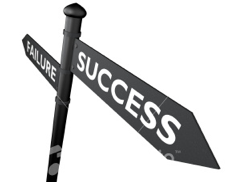 I recently read a twitter post about Charlene Li's participation on a panel at the Web 2.0 Expo held in San Francisco last week. She posted an mp3 of the forum on her site and I had a listen and took some notes.
I recently read a twitter post about Charlene Li's participation on a panel at the Web 2.0 Expo held in San Francisco last week. She posted an mp3 of the forum on her site and I had a listen and took some notes.
I think you'll agree that the content of the conversation is valuable in itself but more importantly, failure needn't be as worrisome when you realize the benefits the organizational change, and beyond, social media can cultivate. I'll get to this point at the end. For now, let's focus on their conversation.
So, why does social media marketing fail?
1. Lack of buy-in
The biggest challenge for most organizations is the culture change required when you open up dialogue with your customers/constituents.
Some people in your organization think social media is merely a digital strategy, something the web nerds are doing. In fact, it's a customer engagement strategy that is the business of all employees. It takes training and planning to open your people up to what it takes to engage in open, authentic dialogue with your constituents. Secondly, you will need executive buy-in if you want to go the distance. Getting the buy-in isn't too difficult if you can tie a social media strategy into larger organizational objectives. Let's talk about that now.
2. Lack of tie-in with organizational objectives
The first question you need to answer is why you want to launch a social media initiative. The valid answer is one that ties in with the broader organizational goals like building brand awareness, extending reach, increasing satisfaction with your service, etc. You cannot measure your social media marketing in isolation of organizational objectives. When you do, you have a metric that is meaningless to the powers that be and your online community building is liable to get cut. And don't forget to track the numbers that legitimize its contribution to the bottom line.
3. Short term, campaign style strategy
A social media campaign is not a campaign. You can't just turn social media on and off; It's about building long term relationships. Failure comes when your web vendor or digital team creates social media 'campaigns' that focus on short term acquisition or list building. Organizations need to ask themselves what kind of relationship they have today and what kind of relationship they want in the future.
4. Lack of planning to handle delicate situations
You're going to get conversations, comments, etc. that are going to rattle the powers that be in your organization. You need to set down the ground rules for how those situations should be handled. In Charlene's work she's found that most organizations have more fear of how their employees will handle touchy online comments than the actual comments. Prepare for these situations and establish rules to ensure your employees will act in the best interest of your organization.
5. Quit after first failure
One of my favorite quotes about social media comes from a collaborator and friend at Social Signal , Alex Samuel. She said, "The default state of a social media initiative is failure." Developing a solid relationship with your constituents is hard. It takes commitment, experimentation and probably failure (or two) to get it right. Don't let failure stop further innovation if your first initiative doesn't create a community. Learn from your failure(s) to engage your audience on their terms.
The last word
And what if the social media marketing plan hits the skids for your organization? Can cultivating more transparency, more authenticity, reaching out to your constituents, motivating your employees or volunteers to cultivate your community really be that bad? It's our belief that this open ethos is truly the way people, businesses, organizations, governments, markets needs to move if we're going to turn this world around. We need to open up, share, but be skillful in how we do that. Social media marketing and its tools are less about how it's being done than it is about your organization breathing a fresh, honest, open dialogue internally, then with your constituents. How you do that might fail, but that behavior will take us where we all need to be.
The thought of initial failure never sounded so good, did it?









